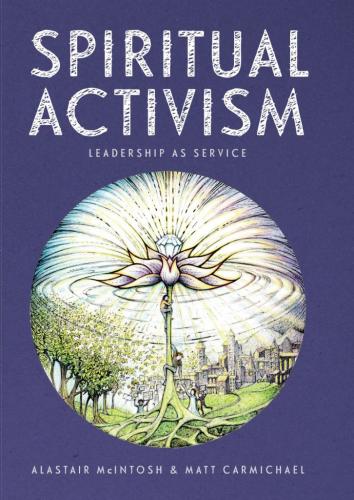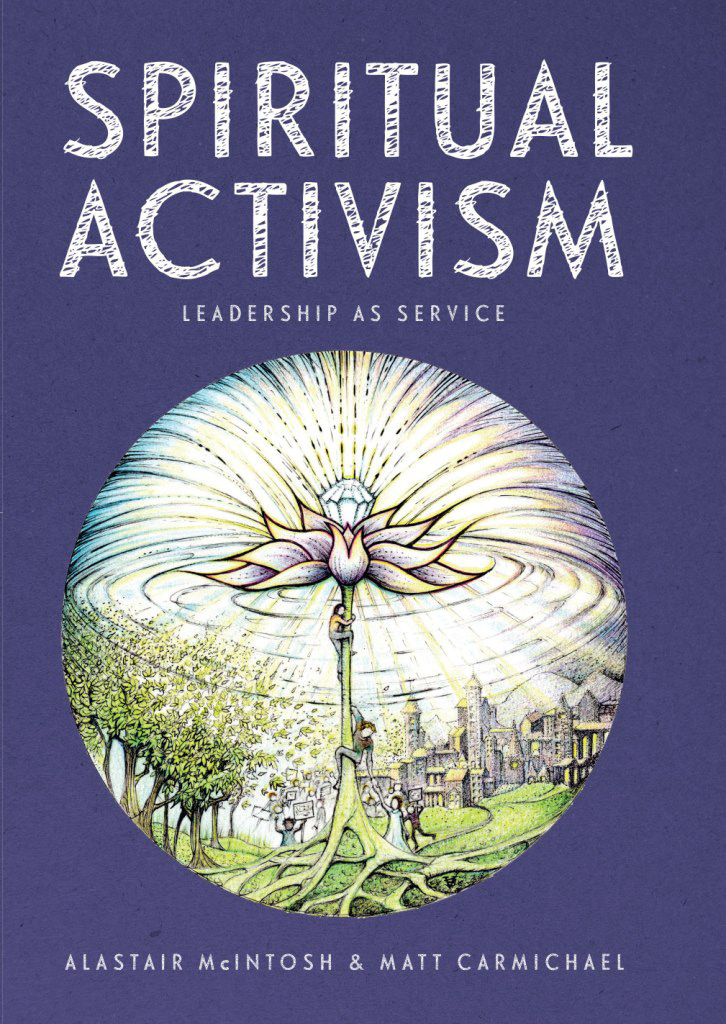 Essentially a handbook for those wanting to explore the potential of a spiritual approach to nonviolent direct action, this is a profoundly important, as well timely, book
Essentially a handbook for those wanting to explore the potential of a spiritual approach to nonviolent direct action, this is a profoundly important, as well timely, book
Many people are now realising the need for a sense of spirit, a reclaiming of the sacred in their lives. And this embrace of spiritual beliefs can also be a taking back of power; a way of connecting, and taking responsibility.
Though working from within, spiritual activism – or ‘subtle activism’, as I have also heard it called – does not dismiss external direct action. In fact, nonviolent direct action is a natural expression of these deeper spiritual convictions.
When the lands of indigenous tribes are threatened by corporate invasion and destruction, it is often the shaman who leads the protests. Their spiritual practices recognise the land as a living entity to be honoured, not a commodity to be exploited. ‘If nothing is sacred, nothing is safe from the mechanisers of life and calculators of profit; and until we find ways to resacralise our world there can be no end to the carnage’, the authors write.
The authors are extremely well-qualified to write this book, both possessing academic backgrounds as well as a wealth of personal experience in the fields of activism and spirituality.Consequently, this is no idealistic treatise, but a well-balanced and pragmatic view, honest about the difficulties and pitfalls inherent in a spiritual approach as well as the problems we often get embroiled in when dealing with leadership and power.
They also emphasise the importance of acknowledging our personal shadows before attempting to challenge the shadows of social injustice, warning that the process of spiritual awakening can often be painful: ‘Our readers will notice that this is no sales pitch’, they observe.
Well-structured, with clear definitions and explanations, there is a lot of information here, covering psychology, philosophy, and the history of spiritual activism, as well as the nature of politics, religion and systems of power. Case studies range from Gandhi to Pussy Riot, and the authors have also included many personal anecdotes, adding a welcome human element.
This is a book with a deep river of wisdom running through it; I know that I will be returning to it often. These are difficult times and to make sense of them a deeper connection to the earth and to each other is essential. Or, as the authors put it: ‘This is indeed a terrible time to be advocating spiritual activism. That’s why the time is right.’


